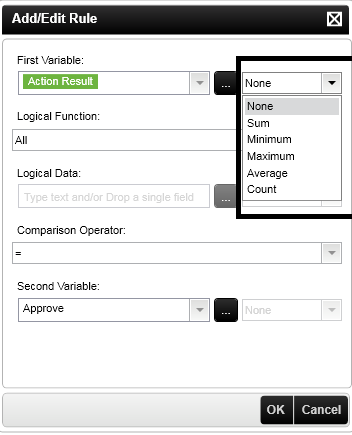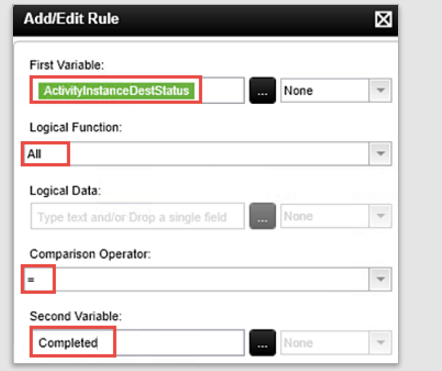I am playing around advanced destination rule. I do understand the concept of slots and etc..
1. What is the difference between All and All Slots?

I am playing around advanced destination rule. I do understand the concept of slots and etc..
1. What is the difference between All and All Slots?

I cannot speak directly to All and All Slots as I actually haven't spent much time with that feature and the UI actually pushes you in a particular direction.
As for the aggregate functions, that is more straight forward as you may want to use that in a scenario where you are doing a voting situation and you need a majority so you might say you wanted at least 5 of 9 users to approve. You'd use the count to account for how many "yes" actions you had collected.
Also, keep in mind that this rule isn't just for outcomes but as a way to handle activity level data fields in general so there may be supported data in an activity level data field that you want to evaluate as well. It just gives you more ways to evaluate all the data you are collecting from each destination user beyond simple approve/decline.
S.
All Vs ALL Slots
All is used for checking the status Activity Destination Instance when IPC call is used to create child processes and to make sure all call to the child process is completed and then only move to next activity in the workflow.
Edit the Succeeding Rule. Add a new rule so that the Activity Destination Instance Status value is equal to
Completed for All logical functions.

ALL Slots is used where we want to check the actions of all the users in succeeding rule before moving to next activity in the workflow.
Enter your E-mail address. We'll send you an e-mail with instructions to reset your password.